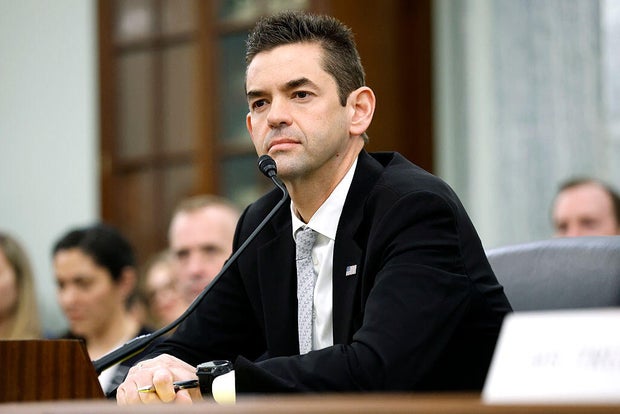The White House is pulling the nomination for billionaire entrepreneur Jared Isaacman, President Trump’s pick to lead NASA, just days before a Senate confirmation vote was set to take place, CBS News confirmed on Saturday.
White House spokeswoman Elizabeth Huston told CBS News in a statement that the next administrator for NASA will “help lead humanity into space and execute President Trump’s bold mission of planting the American flag on the planet Mars.”
“It’s essential that the next leader of NASA is in complete alignment with President Trump’s America First agenda and a replacement will be announced directly by President Trump soon,” Huston said.
Huston did not give a reason as to why the White House was withdrawing its nomination.
Isaacman, a skilled pilot who flies his own MiG-29 fighter jet, has not publicly commented on the White House’s decision. Semafor first reported the news.
Kevin Dietsch / Getty Images
Ahead of taking office earlier this year, Mr. Trump picked Isaacman, a veteran private astronaut with strong ties to Elon Musk and his rocket company SpaceX, to serve as NASA’s next administrator. He would have been NASA’s fifth administrator after former Democratic Sen. Bill Nelson, who flew into orbit aboard the space shuttle Columbia in early 1986.
Isaacman’s nomination advanced through the Senate’s Commerce Committee in April and the Senate was set to vote after returning from the Memorial Day recess next week.
In a social media post after Mr. Trump’s nomination announcement in December, Isaacman, 42, said NASA can expect him to be a vocal space advocate who would help “usher in an era where humanity becomes a true spacefaring civilization.”
“With the support of President Trump, I can promise you this: We will never again lose our ability to journey to the stars and never settle for second place,” Isaacman said at the time. “We will inspire children, yours and mine, to look up and dream of what is possible. Americans will walk on the moon and Mars and in doing so, we will make life better here on Earth.”
William Harwood and
Olivia Rinaldi
contributed to this report.




